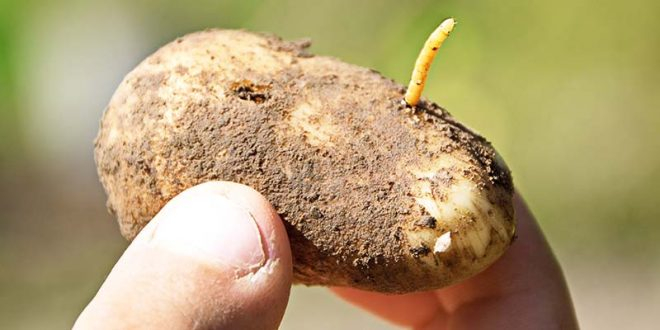Due to a rise in wireworm damage in root vegetable and cereal crops across the UK, industry leaders have banded together to co-fund a Fera-led R&D project to develop an end-to-end solution for the sector.
Enigma I brings together representatives from Syngenta, Frontier, G’s Fresh, Elveden Estate, Pearce Seeds, Inov3PT, and Blackthorn Arable to better understand wireworms and their changing patterns of damage.
“It’s fantastic to launch our first Enigma project with the support of seven prominent agribusinesses, representing a range of crops and stages in the supply chain. Over its three-year program, Fera will undertake research that looks at further understanding the current wireworm species affecting crops and also the lifecycles of wireworm, to find successful Integrated Pest Management (IPM) techniques capable of controlling the pest,” Dr. Larissa Collins, entomology R&D team leader at Fera Science Ltd said.
The Enigma I partners have all disclosed increasing levels of wireworm damage in their respective industries, which is why they are supporting research into the pest.
Wireworm infestation has been linked to annual yield losses of up to 10%, with damaged potatoes being downgraded to stock feed, salad potato crops being rejected by buyers, and carrot usable yield being reduced.
“Being part of Enigma I will help us to understand why wireworm damage within our lettuce crop is increasing significantly. The problem is not just the yield loss from individual plants, it creates massive inefficiencies for the harvesting crews, which adds very significant labor costs,” Peter Saunders, iceberg crop manager, G’s Fresh, added.
Wireworm damage is also posing a barrier for the Enigma I partners working to implement regenerative agriculture practices.
“From several angles, having a crop in the ground at all times of the year is the right thing to do, but we need effective soil pest management options to help stay on top of wireworms through each rotation. By increasing our understanding of how different species of wireworm respond to cover crops and min-till agriculture, this Enigma project will be extremely beneficial,” Andrew Francis, Farms Director at Elveden Farms Ltd declared.
Syngenta’s field technical manager, Max Newbert, also highlights how the learnings from the collaborative research could have a positive impact on the environment.
“With the loss of actives to control wireworm, we’re keen to find alternative preventative solutions and strategies. Going forward, environmental stewardship is only going to become more important for growers, and understanding the wireworm issue in further detail is key to the more targeted use of prophylactics,” Newbert concluded.







